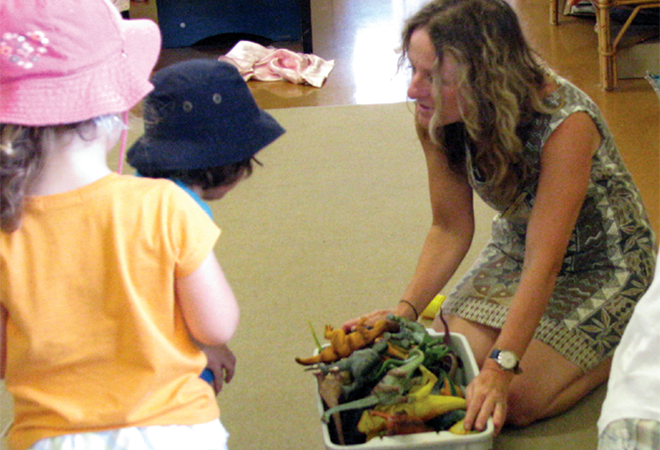
Practice makes perfect – does it? Adding Value to Practicum Experience through Field-Based Teacher Education
Status
Completed: 2 October 2010
Project Details
A project completed in 2010, undertaken by Manukau Institute of Technology (MIT), to conduct an exploratory research project on the value added by field-based teacher education (FBTE) within the MIT early childhood community of practice compared with classroom-based programmes.
Aims:
The main aims of the project were to:
- identify examples of good teacher education practice
- identify critical success factors for student teachers
- provide practical action-oriented suggestions for enhancing the effectiveness of early childhood teacher education practices.
Methodology:
The project used a mixed methods approach involving:
- on-line survey questionnaires with students, lecturers and associate teachers/employers
- targeted focus groups involving students, lecturers and associate teachers/employers.
Team

Lin Howie
Project Leader
Manukau Institute of Technology
Bill Hagan
Manukau Institute of TechnologyStatus
Funding
$10,000.00 (excl GST)
Key Findings
The key findings from the project included:
- Ongoing participation in interrelated communities of practice (‘home’ centre and classroom) promotes the transformation of student teacher participation. Student teachers, lecturers, and employers support each other in regards to practicum, and employers reported that changing beliefs and practice takes time.
- Sustained practicum (SP) validates the cultural capital that student teachers bring with them and invites them to challenge their beliefs and assumptions in the wider community of practice.
- Student teachers, lecturers, and employers valued the ongoing opportunities for student teachers to transfer skills and knowledge from the classroom into practice and vice versa. Employers also mentioned that they valued how student teacher input kept the centre practices up to date.
- Employers and the majority of student teachers report that SP student teachers are treated as part of the centre teaching team. Survey data shows sustained periods of time provide wider opportunities for developing new skills and exposure to participate and contribute in the wider life of the centre. Over the 3 years, student teachers are given increasing levels of responsibility, for example planning and documenting children’s learning.
- The student teachers value ongoing opportunities for reflective writing about practice. Spending more time in ‘quality’ centres supports good practice.
- Where student teachers experience poor practices and poor role modelling within the ‘home’ centre community of practice, they may align themselves with poor practice. This is an issue for student teachers in any teacher education programme, however the challenge for FBTE programmes is that poor role modelling may take place over a considerable length of time. Student teachers need skilful support from lecturers to recognise quality practices. Some student teachers, when they recognise the centre is providing them with a poor learning experience, have chosen to find a new SP centre, others try to improve the centre.
- The value added by FBTE to student teachers relates to their belonging and participation in the two communities of practice; MIT and the ‘home’ centre. This enables transformation of participation in authentic tasks, greater autonomy, personal responsibility and teamwork within the SP centre.
Key Recommendations
The key recommendations from the project were:
Inclusion | Work with centres and student teachers to promote inclusion and participation in the full life of the SP centre and foster a supportive community of practice (student teachers, centre staff, lecturers).
Transformation of participation | Develop student teacher capability to build and maintain relationships and participate in communities of practice; facilitate student teacher’s long-term and integrated reflection on the SP over the length of the programme, e.g. use of 3-year e-Portfolios in order to develop critical self-reflection and deepen understanding of their own transformation of participation through the duration of the programme; and work with students who are volunteers to find out what additional support they may need to participate fully in the ‘home’ centre.
Quality of centres | Enable student teachers to recognise quality centres and make informed choices about where to carry out sustained practicum and offer professional development to centres who have SP student teachers to enable them to support student teachers more effectively.
A research report prepared by Lin Howie and Bill Hagan.
(PDF, 939 KB, 18-pages).
- 4 October 2010